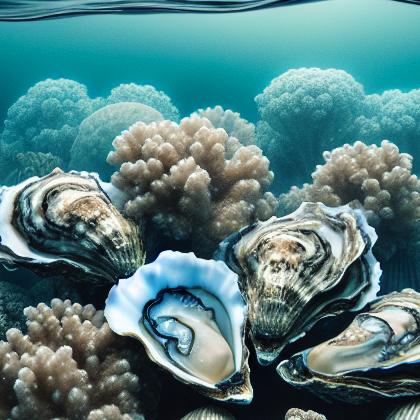Showing results for 'Oyster water'
close
Oyster Water

The word oyster is used as a common name for a number of distinct groups of bivalve molluscs that live in marine or brackish habitats. The valves are highly calcified.Some kinds of oysters are commonly consumed, cooked or raw, by humans as a delicacy. Other kinds, such as pearl oysters, generally not eaten by humans, are harvested for the pearl produced within the mantle.
Oyster water Pairs With:
Food Item
Flavor Affinity Level
Oyster water Properties:
| Food Property | Type | Description |
|---|---|---|
| Flavor Profile | Salty | Oyster water has a salty taste due to the natural salt content in oysters. |
| Texture | Moisture | Oyster water has a high moisture content, as it is primarily composed of the liquid released from oysters during cooking or shucking. |
| Nutritional Value | Micronutrients | Oyster water may contain trace amounts of micronutrients such as vitamins and minerals that have leached from the oysters during cooking. |
| Aroma | Volatile Compounds | Oyster water may contain volatile compounds that contribute to its distinct aroma, which is often briny and reminiscent of the sea. |
| Chemical Composition | Acidity/Alkalinity (pH) | Oyster water may have a slightly acidic pH due to the presence of acids released from the oysters during cooking or shucking. |
Food Pairing App - Version 1.2.0
